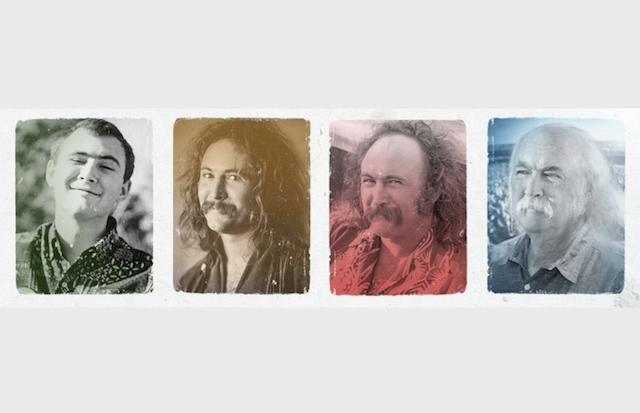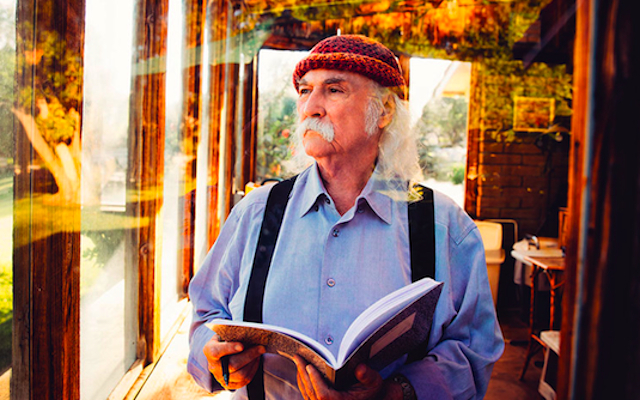CHICAGO – In anticipation of the scariest week of the year, HollywoodChicago.com launches its 2024 Movie Gifts series, which will suggest DVDs and collections for holiday giving.
A Soul Laid Bare in ‘David Crosby: Remember My Name’
 Rating: 4.0/5.0 |
CHICAGO – Getting into the mind of a creative person requires a delicate brush, or on the opposite end of that spectrum a new wing of a mental hospital. Submitted for your approval, one David Van Cortlandt Crosby, in the new documentary produced by Cameron Crowe, “David Crosby: Remember My Name.”
Cameron Crowe was the young wunderkind Rolling Stone writer from the 1970s who morphed into a high level film director (“Almost Famous,” “Say Anything…”). In a sense, he is returning to his roots as the interviewer of David Crosby – a seminal 1960s musician who began with The Byrds, and was one of the frontmen of Crosby, Stills and Nash (and sometimes Young) – in a film about the rocker’s mercurial life. The bar is raised in the film because Crosby is so honest, and expresses some reasons for his bad decisions (too-famous-too-fast, a distant father, legendary drug use) and spotlights an old man who is essentially dying, and longing to set the record straight.
David Crosby was a product of California, a rebel in school and a man whose main passion was music, both as a guitarist and gifted harmony singer. After dropping out of college he attempted a music career out of Chicago, and actually met Roger McGuinn, the eventual lead singer of The Byrds, while performing there. They formed The Byrds in Los Angeles, and helped to popularize the “California Sound,” beginning with their hit cover of Bob Dylan’s “Mr. Tambourine Man.”

Through the Years with ‘David Crosby: Remember My Name’
Photo credit: Sony Pictures Classics
Crosby continued his rebellious ways in The Byrds, and coupled with his heavy drug use and anarchistic politics, was asked to leave the band in 1967. The next year, he formed Crosby, (Stephen) Stills and (Graham) Nash, who played their second show at Woodstock in August of 1969 (first show, Chicago). Neil Young joined them in the early years, and they had several hit records including “Teach Your Children,” “Ohio,” “Guinnevere” and “Suite: Judy Blue Eyes.”
The documentary, directed by A.J. Eaton, focuses on Crosby’s reaction to his life, his monumental struggle with drug use (leading to an arrest in 1982) and his ability to burn bridges with virtually every classic bandmate he ever had. There are strange inner demons behind his rockstar teddy bear look, and the indifference he developed for relationships outside his marriage is somewhat sad. Yet he continues to perform, despite famously surviving a liver transplant and eight stents in his heart.
Producer Cameron Crowe first interviewed Crosby in 1974, and played back a statement the singer made when he answered a question in that talk. When he heard it, Crosby admitted to making up a quote – supposedly said to him by his father – and its resonance is part of his soul analysis in the film. As Crosby observes his life, he seems to be working out the demons that prevented him from so many intimacies, even as to why he wasted so many years wasted.

The Artist in Repose in ‘David Crosby: Remember My Name’
Photo credit: Sony Pictures Classics
This is kind of a rare opportunity to see an old dying man, that we know something and somewhat about, reflect on what life means. One of the key questions that Cameron Crowe asks David Crosby is about the music, and in that realization the pop star/singer/songwriter ponders an incongruity … why did he survive, when others didn’t?
 | By PATRICK McDONALD |


